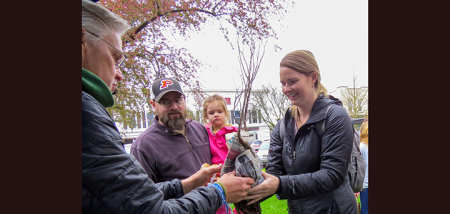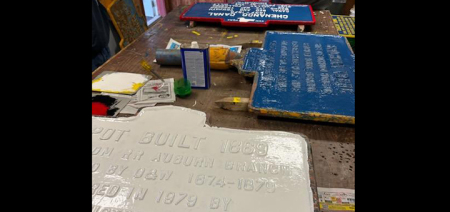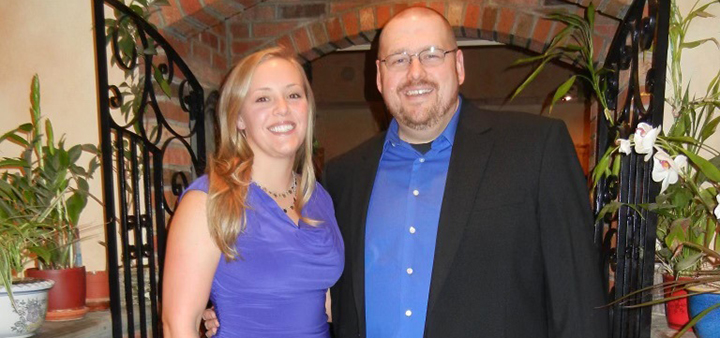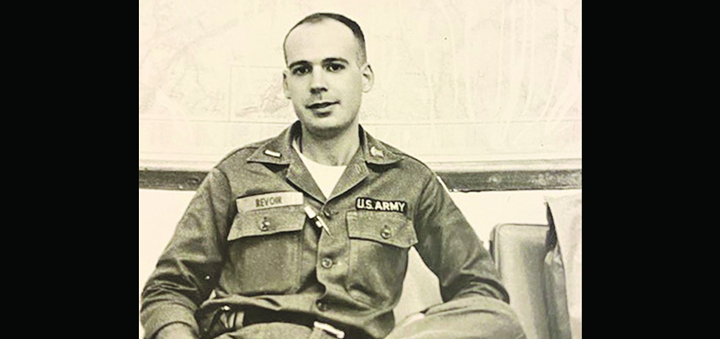Mr. Pearlbott
Published:
July 7th, 2016
By:
Shelly Reuben
He was a short, slight man in his mid-fifties with a pleasant face and thinning hair. His last name was Pearlbott. I never learned his first name, but if I had to pick one for him, it would be Pal or Buddy. A name I would give to a beloved cocker spaniel or beagle — the kind that tilts his head to one side and looks up at you with eyes that say, “Please love me. I love you.”
We were sharing a park bench overlooking a pond at the Botanical Garden. I was eating a bag lunch, and he was tossing bread crumbs to ducks. I had struck up a conversation with him because he reminded me of my Uncle Jack. Both were good men who took people at their face value, more likely to treat a stranger’s story as true, regardless of how implausible, than to treat it as a lie.
Both were civil attorneys, too, so their clients weren’t criminals, but just regular folk seeking help with real estate transactions, adoptions, and such. And both believed … well, I guess that old analogy about a cup being half-full or half-empty expresses it best. Half-empty people expect the world to stomp down on them like nasty children stomping on ant hills. Half-full types expect every next phone call to announce that a long lost relative left them a fortune in his will.
Regardless of the actual contents, my Uncle Jack and Mr. Pearlbott always perceived their cups as being filled to the brim.
Optimists are a hardy breed.
Most of their clients — and I’m sure they would have wished it otherwise — were couples seeking a divorce. This bothered Mr. Pearlbott more than it did my Uncle Jack, because the latter did not see the dissolution of one union as a threat to the institution of marriage or the survival of romance.
Mr. Pearlbott, and I realized this within minutes of meeting him, did.
Dealing with divorce is not easy for an optimist. Particularly one enmeshed in his own heartbreak at the time. I surmised this from his brief mention of a large Tudor house in Westchester County, a small unfurnished apartment on the Upper West Side, and a pained references to “missing his kids.”
But that was beside the point. The point was Mr. Pearlbott’s story.
I held my bag of baby carrots out to him. He nodded and took four. Then, crunching meditatively around the words, he began, “Jack and Jill Gordon. Like in the Children’s poem. Nice couple. Both around thirty-three. She teaches third graders. Wants to illustrate children’s books. Hasn’t sold a thing yet. Showed me some drawings. Colors a little murky, but not awful. He’s a sound mixer at a recording studio. Good jobs. No children. No money problems. They came to me for a divorce.”
I then offered Mr. Pearlbott a small bag of peanuts. My roommate works for a company that packages snacks, so I am never without them. He pointed to his leftover carrots and shook his head.
“Right off,” my new friend continued, “I liked them both. Jill … blond. Maybe a few pounds overweight. But cute. Jack … dimple in his chin, sawdust colored hair, and an awe-shucksy way of talking like a baseball player from Kansas. I have an informal seating area in my office. Armchairs. Coffee table. Sofa. I had my secretary bring us coffee, sat opposite them and said, ‘So. Why do sweet young kids like you want to get a divorce?’”
The story Mr. Pearlbott related, after he finished his last carrot and began to nibble on the peanuts I then thrust into his hands, was of high school sweethearts who married right after college, and twelve years later, had drifted into the doldrums of “Is that all there is?” No grubby love affairs. No mental cruelty. No major complaints. They didn’t even fight. They were just experiencing the Dog Days of Marriage.
“So,” Mr. Pearlbott said, “I talk to them. I remind them how much in love they were when they tied the knot. I say think of the good times. Sunday breakfasts. Kissing at the movies. Making love after a silly fight. Walks in the park. And soon, they’re laughing. Crying. Hugging each other. Hugging me. Thanking me. Swearing to love each other forever. Swearing they’ll come to me when they buy their first house. That they’ll invite me to their children’s weddings. And they leave my office holding hands.”
My bench mate tossed a last few peanuts in his mouth. ““Fee for average uncontested divorce. Twenty thousand dollars. Weigh that against two kids with good hearts? No contest. Happily ever after wins every time. Hurray for the good guy. Twenty K walks out my door, and stupid me, I’m smiling.”
Bur Mr. Pearlbott was not smiling now. He looked utterly dejected. I studied his face, and realized for the first time that he had clown eyes. Well … not really, but there were dark triangles of fatigue under each eye that gave him the appearance of weeping comedic tears.
“Why ‘stupid you?’” I asked.
Mr. Pearlbott’s inhaled deeply, and exhaled an infinity of woes. “Because three weeks after they swore eternal love…” He made two fists of his hands, held them out knuckle-to-knuckle in front of his chest, and then violently jerked them downward in a breaking motion.
“Oh,” I grimaced. Less sorry than surprised. “But,” I added cheerfully, “at least they’ll know where to go for a compassionate attorney who will make their split as painless as possible.”
“And whom might that be?” Mr. Pearlbott asked skeptically.
I grinned. “Why, you, of course.”
“Oh, no,” his lips compressed into a lawyer-like frown. “When Jack and Jill tumbled down the hill, they bypassed my office, and chose to contribute their legal fees to Wolf, Chung, and McNulty, down the hall.”
“But,” I asked, utterly incredulous. “You gave them all that free time. You cared about them. You tried to save their marriage. Why would they do that to you?”
Mr. Pearlbott brushed peanut crumbs off his hands, and got to his feet.
Then he did one of those “cup half-full” things that I couldn’t have done in a million years. I would have kicked a tree, or sent a nasty letter, or quit law and bought an ice cream truck. But not him. He shrugged, and with a crooked, sort of heartbreaking smile that did nothing to alleviate the clown sadness in his eyes, he said, “They left my office with such high expectations. Maybe they thought I’d never hear about the divorce. Maybe they were embarrassed. Maybe they didn’t want to disappoint me.”
Now I, too, stood. I muttered, “Yeah. And maybe they were jerks.” Then, without thinking, I blurted out, “What happened to your marriage?”
Mr. Pearlbott shrugged. “I’m a hard guy to live with,” he said expressionlessly.
I never say the word “Yeah.” Never. Never. Never. My mother always told me it was crude. But I said it again that day. “Yeah,” I repeated gruffly. “And maybe she’s a jerk, too.”
Mr. Pearbott ignored my jibe and asked, “Do you have any more peanuts?”
I nodded, and gave him my last three bags.
He grinned. This time, the grin hit his eyes. It actually did. Bing. Just like that. No more sadness. No more sorrow. And the grin turned into a smile. A real smile. He reached into his pocket for a business card and handed it to me. I read: PEARLBOTT LAW OFFICES. A phone number. An address.
“If you ever need anything,” he said wistfully.
Then he tore open one of the little bags, walked toward the pond, and happily began to feed the ducks.
Copyright © Shelly Reuben, 2016
Shelly Reuben’s books have been nominated for Edgar, Prometheus, and Falcon awards. For more about her writing, visit www.shellyreuben.com.
Author: Shelly Reuben - More From This Author
Comments







